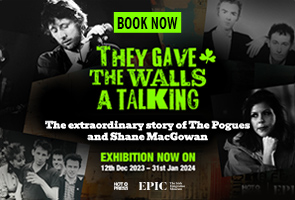August ’69 & ‘Irish’ identity
Published in 20th-century / Contemporary History, General, Issue 6 (Nov/Dec 2009), Letters, Letters, Volume 17Sir,
—As an Irish ‘type’ which does not exist in the usual scholarly andmedia analysis of modern Ireland, I approached your special issue onAugust ’69 (HI 17.4, July/Aug. 2009) with the usual presentiments. Mypaternal grandparents were Presbyterian and ‘British’, my maternal weremoderately nationalist yet Presbyterian. The women had southern links,and there was a heavy dose of cultural transmission such that I, forexample, can play all forms of flute music.
As a university student in Belfast in 1966–71, I was involved withstudent activists (though not one myself). I also worked in dancebands, including one eight-piece that was ‘religiously’ 50/50, and Irecall playing remoter halls where breviary-reading priests walked thedance floor. My situation for various reasons led me in 1969 to witnessmen, whom I later learned were IRA, meeting with InternationalSocialist terrorists.
A close schoolfriend who had gone to TCD a year ahead of me and hadbecome an IS (I was unaware of this at the time, but I knew he wasalienated from his army doctor father) had asked me to deliver twoFrench people to a meeting on the Falls Road (my musicianship paid forthe running of a car). With a goatee beard and mumbled French, I waspermitted to join the meeting in the front parlour of a terrace houseas an observer. It was soon after that I started to make plans to leaveIreland.
The Roman ‘Catholic’ Church, since it was made palatable tostatus-conscious Roman aristocrats and established in the fifth centuryAD, has always been strongly political. It has also unashamedly,learning from the Early ‘Christian’ Apologists, exploited self-servingrevisionist tendencies in writing its history. Its destruction ofAlexandria, that great cosmopolitan city of art and intellectbenefiting from a high percentage of Jews, is but one example, asRomans trampled their way to restore (briefly) political dominance inthe Near East. Those of us who devote time to the academic study ofZionism (‘Dignity of difference’?) and other forms of Herderian and‘Romantic Nationalism’ know how evil the results can be.
I am ‘Irish’, for that is where I was born and educated, yet I haveencountered Southerners as far away as Melbourne and Nairobi where Ihave worked who would deny me that appellation. But they have beenconditioned by propaganda. Political correctness also comes into playnowadays: I recall Prof. Roy Foster being honoured in delivering theannual IHS lecture at the University of London’s Senate House, when hedid not once use the term ‘Anglo-Irish’. Such is the price of joiningtoday’s ‘Roman’ élite?
—Yours etc.,
NEVILLE CRAIG
UK
















